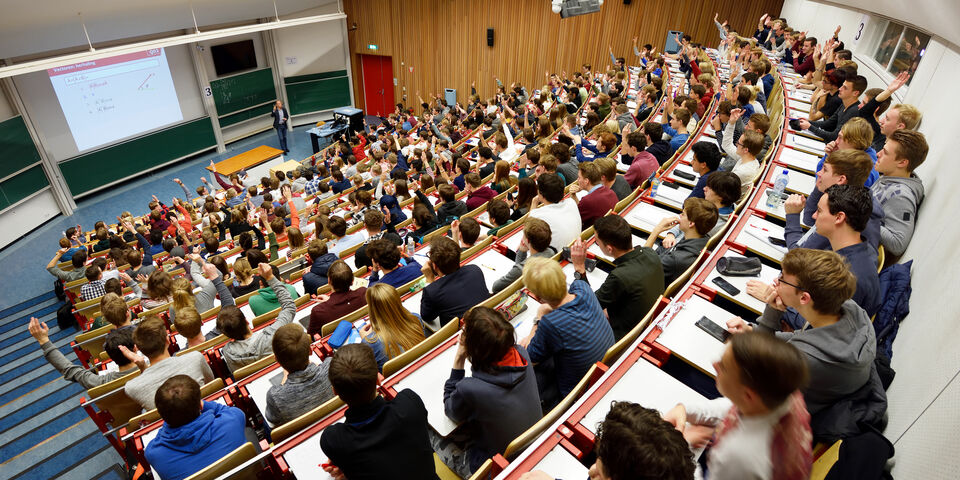Yesterday, the government announced additional measures to stop the spread of the coronavirus. First, institutions were instructed to stop offering large-scale lectures, after which it was to decided to stop all physical education at universities and institutions of higher professional education until the end of the month.
Delay
The Dutch Student Union (LSVb) welcomes the decision. “Our members already came to us with questions,” says chairwoman Alex Tess Rutten. “People didn’t understand why you were allowed to sit in a lecture hall with hundreds of students, while large-scale lectures were being cancelled.”
The LSVb urges the universities and institutions of higher professional education to suspend the attendance requirement and to offer extra retake opportunities. “Our main concern for now is study delay. We’re currently discussing this issue with the ministry. Many students can’t afford a delay of one year. They shouldn’t have to suffer the consequences of the coronavirus.”
Problems
This concern is shared by the ISO(Dutch National Student Association, or ‘Interstedelijk Studentenoverleg’). “You can deal with working from home for a couple of weeks in a creative way,” says chairman Kees Gillesse. “But if this situation continues for a longer period of time, you’re going to run into problems with exams, a binding study advice or a graduation project.”
At this point, it’s not clear who will eventually bear the costs when a massive number of students experience study delays. Institutions of higher education have a provision fund to support students who experience delays in their studies. But this fund might quickly become exhausted when thousands of students are forced to make use of this fund.
Adequate
“We simply need to make proper agreements with universities and institutions of higher professional education about delay,” Gillesse says. “What matters most is that the necessary actions are taken to stop the spread of the virus.” LVSb chairwoman Rutten agrees. “If this is the advice of the experts of the RIVM, it’s not our place to question that.”
She says that not every institution has been “equally adequate” at cancelling education and exams. Amsterdam University of Applied Sciences, for example, decided to continue with tutorials and small-scale lectures today.


Discussion